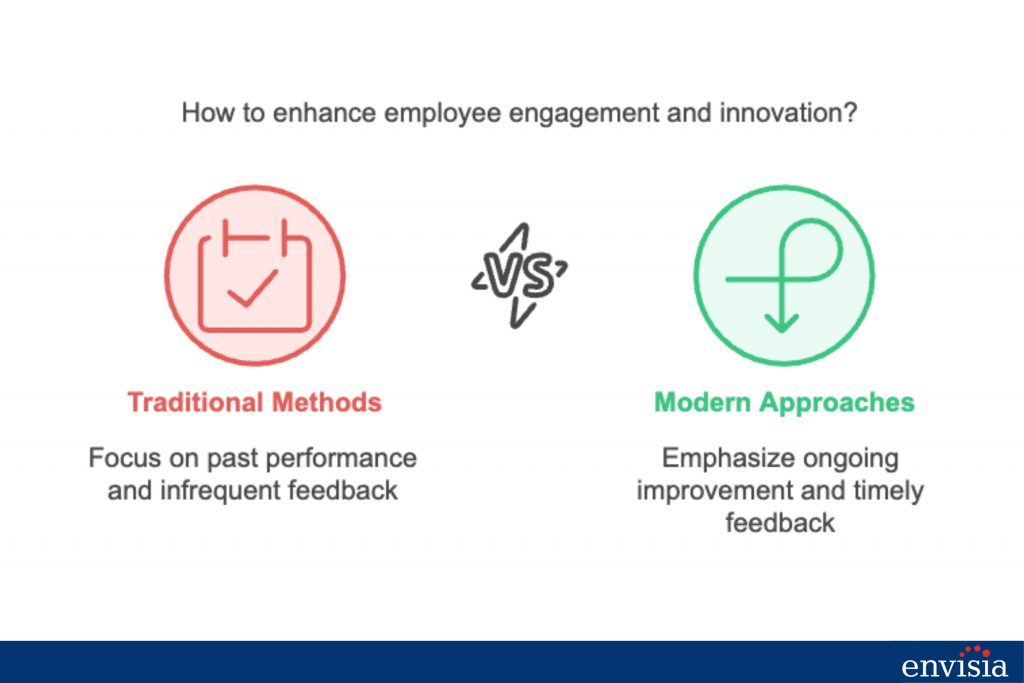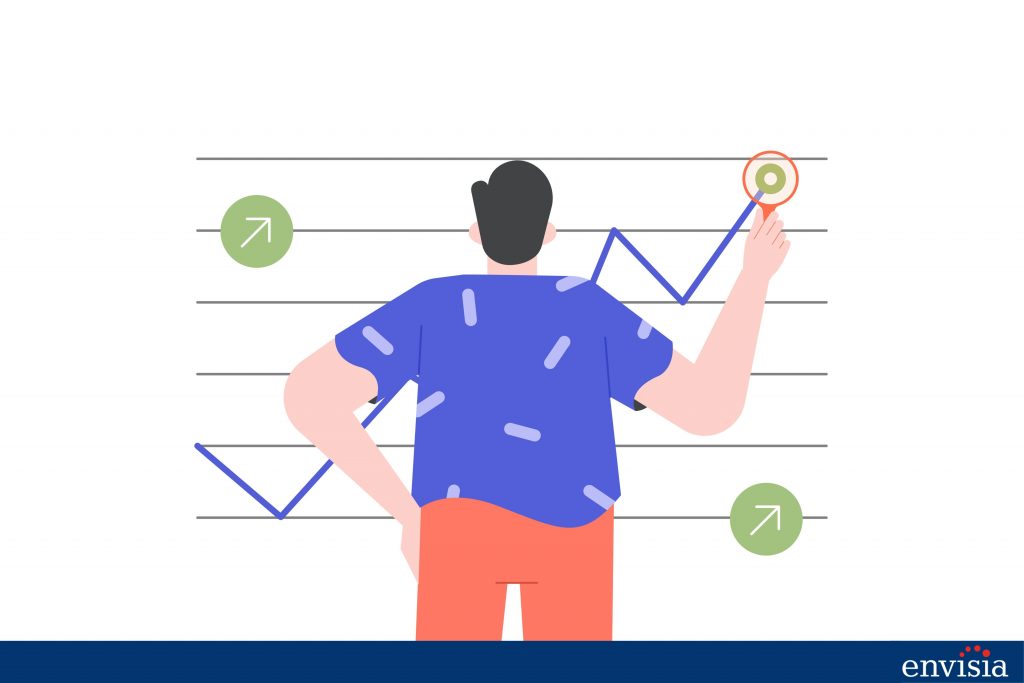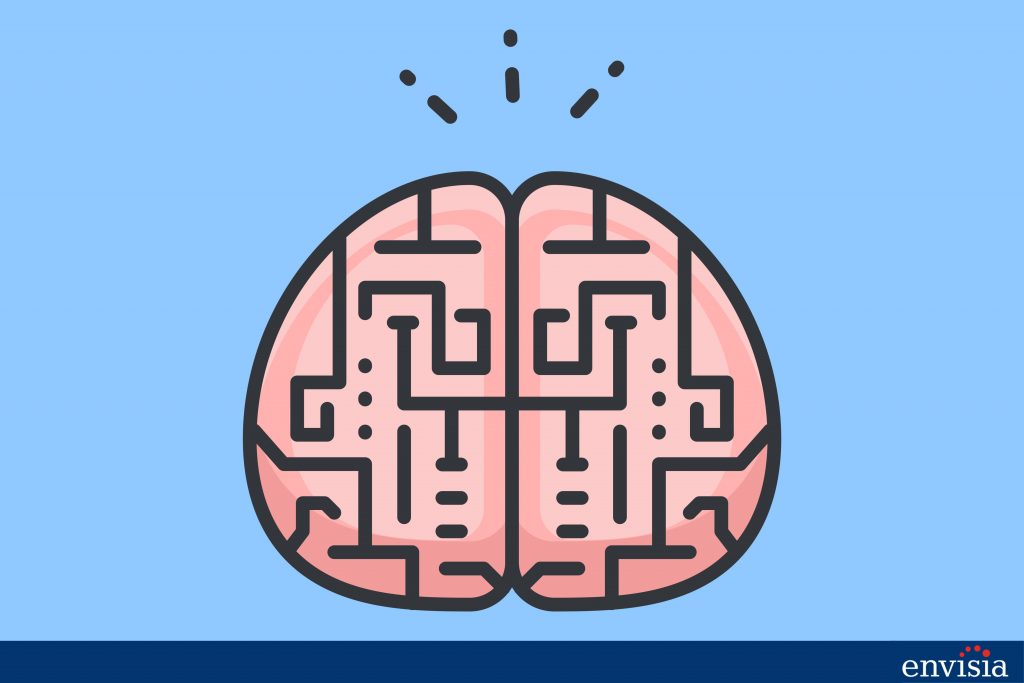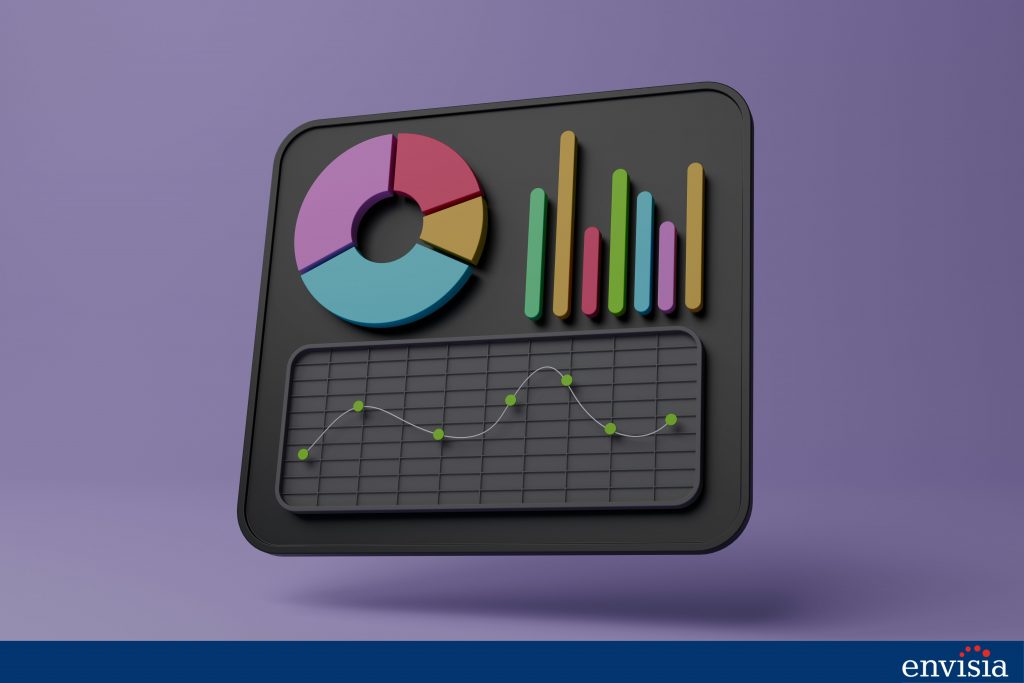Have you ever felt that traditional performance reviews don’t truly reflect your efforts or potential? Perhaps the annual appraisal leaves you wanting more frequent, meaningful feedback that could actually help you grow. You’re not alone. Many organizations are recognizing that their current performance management systems are falling short in engaging employees and fostering development. The disconnect between outdated review processes and the needs of today’s dynamic work environment is becoming increasingly apparent.
This gap poses a significant challenge: how can we create a performance management approach that not only evaluates but also enables employee growth and satisfaction? Relying on past performance and infrequent feedback hampers our ability to adapt and improve in real-time.
The good news is, there’s a better path forward. By embracing contemporary performance management strategies that focus on regular feedback, personalized development plans, and current performance data, we can cultivate a more supportive and productive workplace. In this blog, we’ll delve into the evolution of performance management and explore key trends shaping its future. Together, we’ll discover how adopting these innovative approaches can enhance employee performance, satisfaction, and retention.
Key Takeaways
- Embrace Continuous Feedback: Shifting from annual performance reviews to continuous assessment models enhances employee engagement and productivity.
- Leverage AI and Analytics: Integrating artificial intelligence and predictive data in performance management systems creates more objective evaluations and personalized development plans.
- Foster a Growth-Focused Culture: Prioritizing employee well-being, team performance, and continuous improvement prepares your organization for the future of performance management.
The Evolution of Performance Management

Why Traditional Performance Management Needs a Rethink
In an era where the pace of change is accelerating, traditional performance management practices are increasingly out of step with administrative needs. Annual reviews and rigid appraisal processes often fail to provide the timely feedback employees require to adapt and excel in their roles. This outdated approach can lead to disengagement, as employees wait months to receive performance feedback that may no longer be relevant to their current projects or challenges.
Moreover, these traditional methods tend to focus on evaluating past performance rather than enabling future growth. By emphasizing performance ratings over professional development, organizations risk stifling innovation and failing to address performance issues early. There’s a clear need to transition from a system centered on assessments to one that prioritizes ongoing improvement and employee empowerment.
The Shift Toward a Modern Performance Management System
In response to these challenges, many organizations are embracing modern performance management systems that emphasize agility and ongoing dialogue. This shift involves moving away from static annual reviews to dynamic systems that incorporate regular check-ins and real-time feedback. This approach allows managers and employees to engage in meaningful performance conversations that address current objectives and future goals.
Personalized development plans are becoming a cornerstone of this new approach, aligning individual performance objectives with administrative goals. By focusing on the unique strengths and aspirations of each employee, organizations can foster a culture of continuous improvement and better performance outcomes.
Key Trends Shaping the Future of Performance Management

Real-Time Feedback and Continuous Improvement
One of the most significant trends in the future of performance management is the move toward real-time feedback and continuous improvement. Shifting from annual evaluations to ongoing feedback allows for immediate recognition of achievements and timely addressing of challenges. This real-time performance tracking not only enhances employee engagement but also enables quicker adjustments to align with changing business objectives.
Companies like Adobe and Deloitte have successfully implemented regular assessment models, replacing conventional performance appraisal processes with regular check-ins and constructive feedback sessions. These organizations have reported deeper insights into employee performance and increased agility in managing performance across teams.

Integration of AI and Predictive Analytics in Performance Management Systems
Artificial intelligence and predictive analytics are revolutionizing how Human Resources approaches performance management. By leveraging machine learning algorithms, leaders can analyze objective performance data to identify patterns and predict future performance trends. This allows for proactive interventions, helping to address performance issues early and tailor professional development opportunities to individual needs.
Predictive and prescriptive data provides HR with fact-based performance and development discussions, moving beyond subjective assessments. By collecting more objective performance data through systems, organizations can make data-driven decisions that enhance both individual and team performance.
Emotional Intelligence in AI-Driven HR Tools
As AI becomes more integrated into human resources practices, the incorporation of emotional intelligence into AI-driven tools is gaining traction. These advanced systems can assess employee sentiment and engagement levels, providing HR leaders with valuable insights into morale and job satisfaction. By understanding the emotional aspects of employee performance, organizations can create more supportive and productive workplaces.
However, the use of AI in performance evaluations raises important ethical considerations. Transparency in how data is collected and used is crucial to maintaining trust between employees and managers. HR must ensure that AI-driven assessments are fair, unbiased, and used to support employee growth rather than merely to evaluate performance.

Data-Driven, Fact-Based Performance Management
The future of performance management is increasingly data-driven, relying on objective performance indicators to guide decisions. By using performance management software that tracks measurable KPIs, organizations can reduce the subjectivity often associated with traditional appraisal processes. This approach ensures that performance assessments are based on concrete data rather than personal opinions, leading to more equitable evaluations.
Aligning metrics with organizational goals helps employees understand how their contributions impact the larger mission. This clarity fosters a culture of accountability and ongoing performance improvement, ultimately driving better performance across the board.
What a Modern Performance Management System Looks Like
Personalization in Employee Performance Appraisal
A modern performance management system places a strong emphasis on personalization. By creating personalized development plans, organizations can align each employee’s performance objectives with their unique career aspirations and strengths. This tailored approach not only enhances employee engagement but also contributes to higher retention rates.
When employees see that their individual goals are recognized and supported, they are more motivated to contribute to the organization’s success. Personalized appraisals that focus on growth and development, rather than solely on performance ratings, foster a more positive and productive work environment.

Prioritizing Team-Based Performance over Individual Appraisals
In today’s collaborative workplace, emphasizing team performance over individual appraisals is becoming increasingly important. By focusing on shared goals and collective outcomes, organizations can encourage cooperation and synergy among team members. This approach is particularly beneficial for complex projects that require diverse skills and perspectives.
Evaluating team success fosters a sense of shared responsibility and can lead to higher overall performance. It also reduces unhealthy competition and promotes a culture where employees support one another in achieving common objectives.
Fostering a Culture of Continuous Feedback and Coaching
A key component of current performance management is fostering a culture of continuous feedback and coaching. Regular, informal check-ins between employees and managers create opportunities for real-time performance discussions and immediate support. This ongoing feedback loop not only addresses current challenges but also encourages constant improvement and professional development.
Such an approach strengthens trust and alignment, as managers become coaches who guide employees toward achieving their goals. By prioritizing development over evaluation, organizations can enhance employee satisfaction and drive better performance outcomes.
The Role of HR in Driving the Future of Performance Management
HR as a Strategic Partner in Performance Evolution
HR professionals are at the forefront of driving the future of performance management. By transitioning from administrative roles to strategic partners, HR can lead the implementation of contemporary approaches to performance management that align with organizational values and objectives. This shift empowers leaders to influence company culture and employee engagement at a deeper level.
As strategic partners, HR can facilitate conversations between managers and employees, ensuring that performance management processes are effective and aligned with the organization’s goals. This proactive involvement is crucial for fostering a high-performance culture that adapts to the evolving nature of work.
Leveraging Technology and Tools for Better Employee Engagement
Leveraging technology is essential to enhance employee engagement and streamline performance review processes. AI-powered tools and performance management software can automate administrative tasks, allowing HR to focus on strategic initiatives. These technologies provide analytics that offers deeper insights into employee performance, enabling more informed decision-making.
For example, using AI-driven platforms, companies can identify trends in employee satisfaction, predict potential performance issues, and tailor interventions accordingly. By embracing these tools, HR can foster a more engaging and supportive work environment, ultimately contributing to better performance and retention.
Ensuring Fairness and Transparency in Performance Evaluations
Ensuring fairness and transparency in performance evaluations is critical for building trust within an organization. HR plays a vital role in designing performance management systems that are equitable and free from bias. By standardizing evaluation criteria and making them transparent, HR can help ensure that all employees are assessed fairly.
Strategies to promote transparency include involving employees in the goal-setting process, clearly communicating performance expectations, and providing regular, objective feedback. By doing so, Human Resources can foster an environment where employees feel valued and motivated to perform at their best.
Preparing for the Future – Key Strategies for a High-Performance Culture
Moving from Performance Appraisal to Performance Enablement
To stay competitive in the future of work, organizations need to move from traditional performance appraisal to performance enablement. This approach emphasizes empowering employees by focusing on their growth and development rather than merely evaluating past performance. By investing in learning and development, coaching, and career planning, companies can enhance employee satisfaction and drive innovation.
Performance enablement fosters a culture where employees are encouraged to take ownership of their development, leading to increased engagement and better overall performance. This shift aligns individual aspirations with structural objectives, creating a win-win scenario for both employees and the company.
Aligning Performance Management with Organizational Values
Aligning performance management with organizational values is essential for creating a cohesive and motivated workforce. When performance goals reflect the company’s core values, employees understand how their work contributes to the bigger picture. This alignment enhances employee loyalty, as individuals feel connected to the organization’s mission and culture.
By reinforcing company values through performance objectives, organizations can drive productivity and foster a strong corporate identity. This approach ensures that performance management is not just about meeting targets but also about embodying the principles that define the organization.

Supporting Employee Well-Being and Mental Health
Employee well-being and mental health are becoming integral parts of current performance management strategies. Recognizing that employee performance is closely linked to well-being, organizations are integrating wellness initiatives into their performance management processes. This holistic approach supports employees both professionally and personally, leading to higher engagement and performance.
HR can play a pivotal role by incorporating mental health resources, flexible work arrangements, and supportive policies into performance systems. By doing so, organizations demonstrate a commitment to their employees’ overall well-being, which can enhance morale and reduce burnout.
The Future of Performance Management – What’s Next?

Embracing Hybrid Work Models and Flexible Goals
As remote and hybrid work models become the norm, performance management must adapt to these new realities. Hybrid work presents unique challenges and opportunities, requiring flexible goal-setting and innovative approaches to managing performance. Organizations need to develop strategies that accommodate diverse workplaces while maintaining productivity and engagement.
Flexible performance objectives allow employees to adapt to changing circumstances without sacrificing accountability. By embracing these models, organizations can attract top talent and remain competitive in an evolving marketplace.
Future Innovations and Technologies on the Horizon
Looking ahead, emerging technologies like immersive feedback platforms and AI-driven personalized coaching are set to further revolutionize performance management. These innovations offer real-time, tailored support to employees, enhancing engagement and development. Advancements in predictive analytics and machine learning will provide even deeper insights into employee performance, enabling proactive and personalized interventions.
As these technologies evolve, organizations that embrace them will be better positioned to create high-performance cultures. Staying ahead of the curve in adopting these tools can give companies a competitive advantage in attracting and retaining talent.
Conclusion
The evolution of performance management reflects a significant shift from static, one-size-fits-all systems to agile, personalized, and continuous assessment-driven approaches. By embracing real-time performance data, leveraging artificial intelligence and analytics, and fostering a culture of ongoing improvement, organizations can create productive work environments that align with both employee aspirations and structural goals.
As we look to the future, it’s clear that the way we manage employee performance will continue to evolve. Organizations that proactively adopt progressive performance management strategies will not only improve performance but also enhance employee satisfaction and retention. By staying ahead of the curve, companies can build high-performance cultures that thrive in the ever-changing landscape of work.
